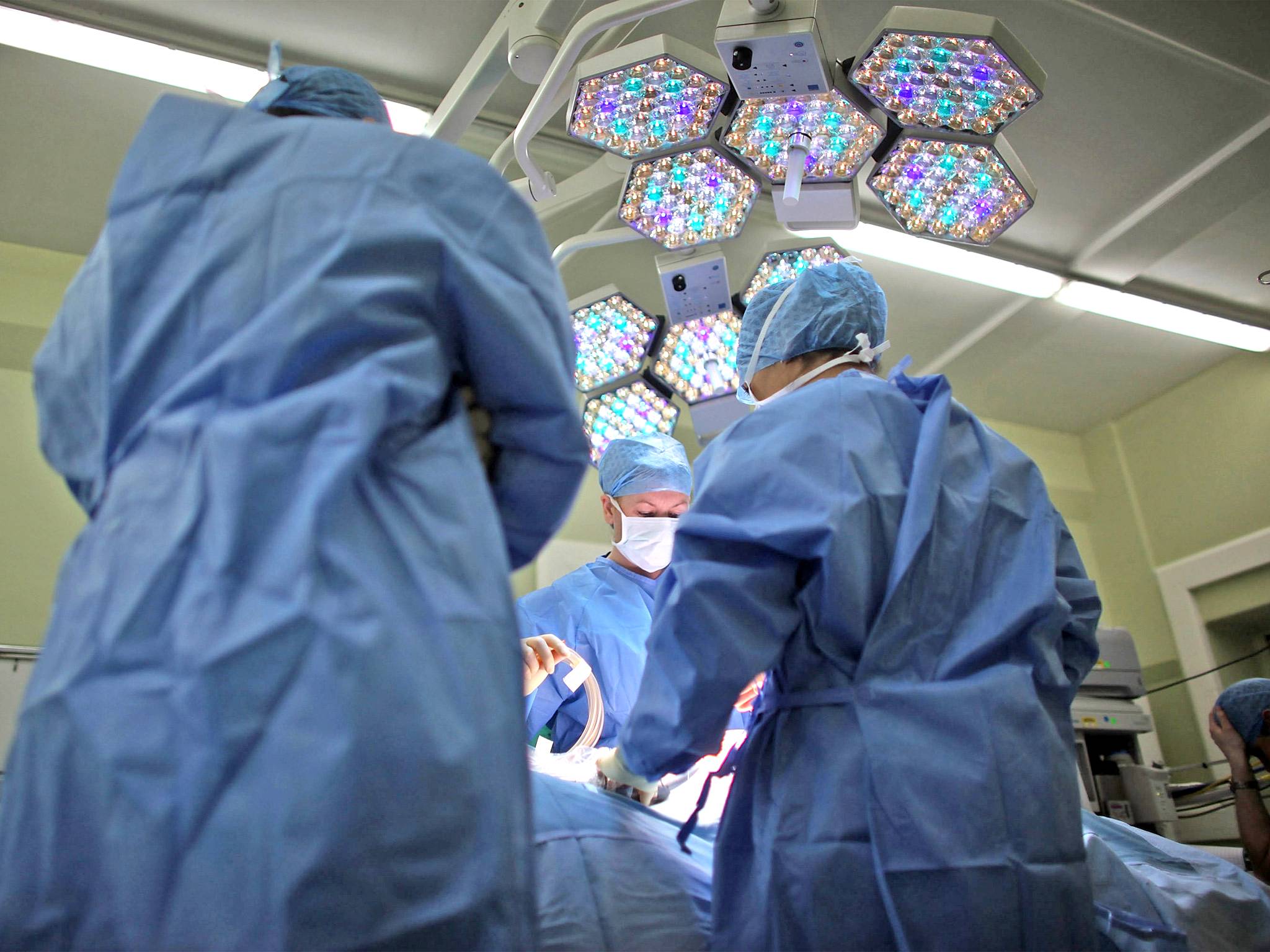Doctors issue urgent warning to anyone planning to get surgery abroad
Doctors warned surgery abroad have been spurred on by a ‘social media nation’ where people feel the need to present themselves in a certain way

Leading doctors have warned that the NHS is being left to “pick up the pieces” as a result of complications linked to a rise in people traveling abroad for surgery.
Several horror stories have emerged from complications abroad after surgeries including hair implants and weight loss.
There are also increasing concerns about patients buying weight loss drugs, such as Ozempic and Wegovy, online, without proper “wraparound” care, and fears people of a normal weight are using the prescription-only medicines.
David Strain, a professor of cardiometabolic health, said that a rising number of people are travelling abroad for procedures including weight loss surgery and hair implants, but may not be getting care of the same standard that they would expect in the UK.
Prof Strain, chairman of the British Medical Association’s (BMA) Board of Science, said medics in the UK are increasingly seeing patients with complications from surgeries, including infections.
Foreign Office travel advice says that the standard of medical facilities and available treatments can “vary widely globally” and highlights how six British nationals died in Turkey in 2023 after medical procedures.
Medics at the BMA’s national annual meeting in Belfast heard that there has been a “boom” in surgical tourism, which is “leading to a rise in serious post-surgery complications and deaths”.
Delegates passed a motion expressing concern about the patients who need emergency surgery when they return to the UK.
The motion also called for an increase in weight management services funded by a rise in the sugar tax.
Earlier this year The Independent reported on the case of a 20-year-old woman who died after having weight-loss surgery in Turkey.
Morgan Ribeiro travelled from her home in south London to Turkey for a £2,500 gastric sleeve operation in January, saying she had researched her options thoroughly because she did not want to spend years on an NHS waiting list.
After being given the green light to fly home three days after the procedure on 5 January, Ms Ribeiro fell seriously ill during the flight back to Gatwick Airport, forcing the plane to make an emergency landing in Serbia, where she was rushed to hospital.

The family says surgeons removed 10cm of her small intestine and were hopeful she would pull through. However, on 9 January the family said Ms Ribeiro suffered a heart attack and she was put in an induced coma. She died four days later at 4am.
Presenting the motion on Tuesday, Dr Samuel Parker from the BMA said: “Several overseas clinics provide bariatric surgery far cheaper than the cost of disposable instruments used in the NHS. Follow-up is typically non-existent.
“(There are) reports of shortcuts, inappropriate use of disposable instruments and patients suffering serious complications necessitating emergency NHS treatment.”
On the sugar tax, he added: “The sugary drinks tax in England was followed by a drop in a number of cases of obesity among older primary school children. It is estimated that 5,000 cases of obesity per year may be prevented in Year 6 girls alone.”
Prof Strain told journalists: “Surgical tourism has been a problem for some time, people disappear off to notably South Africa and Turkey, but there’s many other places to disappear too.
“And complications can arise late from any procedure, not just obesity surgery, even just something as simple as hair implants that people travel for.
“You can get infections and the problem is people come back and they are asking the NHS to pick up the pieces of procedures that were done with less standards that we would normally apply in the UK.
“Health tourism is on the rise as people are slightly more affluent, international travel is easier than it was, organising these things are easier thanks to the internet.”
He said that the increase in anaesthetic procedures abroad have been spurred on by a “social media nation” where people feel the need to present themselves in a certain way.
“What we can never guarantee is the surgical standards in different countries, and even the equipment that may be used, and that’s where the risk comes,” he said.
Prof Strain added: “Anything that puts extra burden – if (a person) fills a hospital bed, for example, with an infection, there are only so many beds, and a hospital bed full of somebody who’s gone for a procedure (abroad) that needs to be fixed, means that an elective procedure is likely to get cancelled.
“In an already overburdened health service then, health tourism can cause significant issues.”
Asked about weight-loss drugs, he said: “One of the big worries about using these agents without a full wraparound service is that if you just give a drug that makes people lose weight, without the proper wrapround care that goes with it – talks about the changes in diet required and exercise that is absolutely required – then people will lose fat and muscle and other tissues and we end up with a condition called sarcopenic obesity, where basically the muscles are being lost at the same rate that the fat is being lost, and you see that so-called ‘Wegovy face’, which is very gaunt.
“In all of the trials for weight loss drugs, every single one of them, it was drug plus lifestyle intervention and dietary advice, and the worry is that if you just buy these drugs off the internet without that wraparound, without that support, you end up jabbing yourself, and we don’t know the health benefits will be the same in those settings.”

On people of normal weight buying drugs online, he said: “There’s always concerns about online drugs that have side-effects, that have interactions, and that can have an undesired effect if given to the wrong person.
“And any drug if it’s given to the wrong person can potentially do harm.
“Once you are living with obesity, the brain chemistry changes, and these drugs are all about correcting the brain chemistry, so you start to feel satiated from food, you start to eat normal amounts.
“If you are a completely normal weight and you don’t have these alterations in brain chemistry, it’s entirely possible the drugs do absolutely nothing. Or it’s entirely possible that they even muck up the brain chemistry.
“They’ve never been tested in those populations. These are drugs that have been tested and they have got amazing results in people living with obesity, have amazing results from people with diabetes – we’re starting to see results in kidney disease and other disease states.
“But throughout the trials, nobody has been using these drugs in people (who) have normal weight without diabetes, because it made no sense.
“So if you’re asking me what the effects are, I don’t know.”
Join our commenting forum
Join thought-provoking conversations, follow other Independent readers and see their replies
Comments
Bookmark popover
Removed from bookmarks